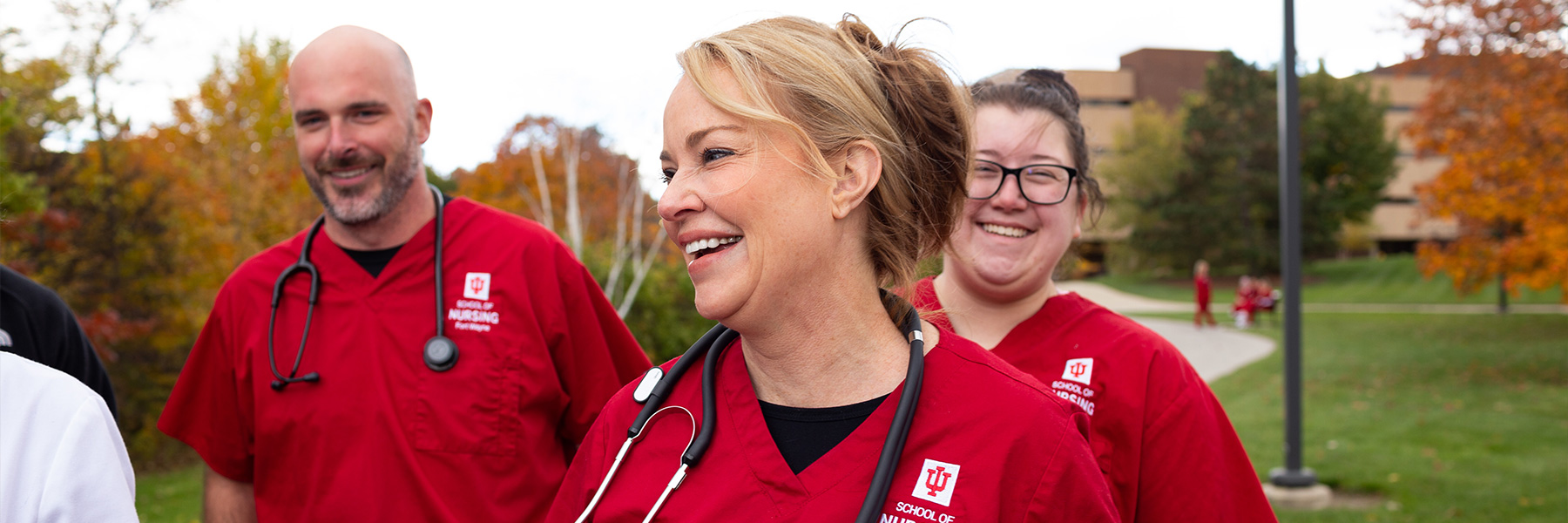Indiana’s top-ranked nursing program in an accelerated format
If you have earned a bachelor’s degree in a non-nursing field and would like to pursue a nursing career, our second degree Accelerated Bachelor of Science in Nursing (ABSN) track is designed for you.
How long is the program?
Our program moves at a fast pace—16 months of full-time study, including summer sessions—allowing you to launch your nursing career quickly while receiving a top-tier education.
What will I learn?
You’ll engage in a concept-based, cutting-edge curriculum designed to prepare you for real-world nursing. Through high-fidelity simulation labs, interprofessional education experiences, and immersive clinical experiences, you’ll build clinical judgment and readiness for practice.
What kind of hands-on experience will I get?
After mastering foundational skills, you’ll gain care experience in hospital and community settings, applying evidence-based care under the guidance of expert faculty. The program culminates in an immersive capstone experience, where you’ll be alongside experienced nurse preceptors to refine your skills and gain confidence before graduation.
Why choose us?
As Indiana’s #1 nursing program, our exceptional faculty, provide cutting-edge learning opportunities, and outstanding clinical placements, ensuring our graduates are prepared to lead and make an impact in improving the health and wellbeing of those we serve.


